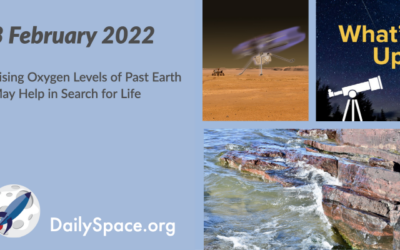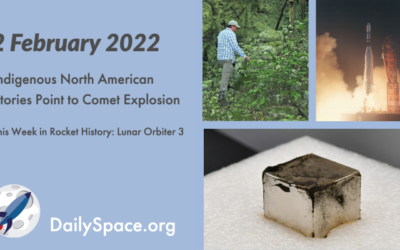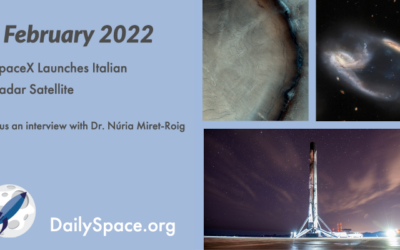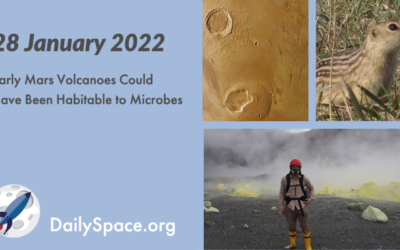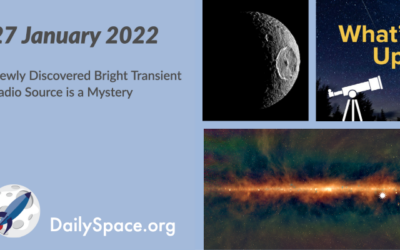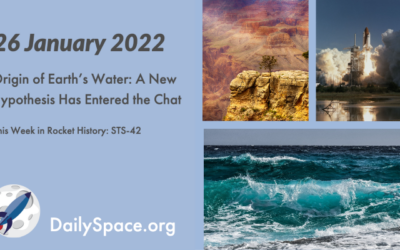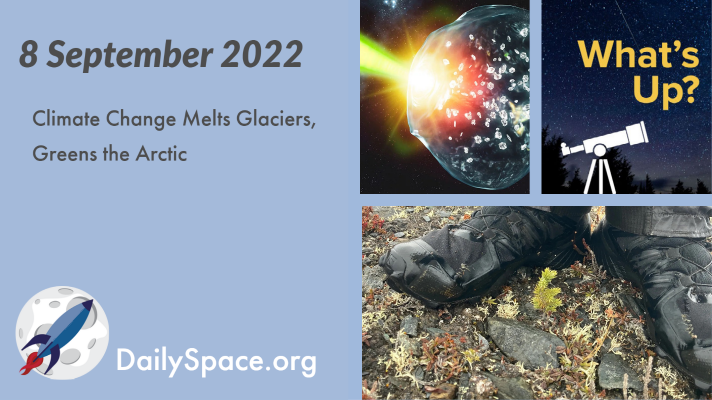
Climate Change Melts Glaciers, Greens the Arctic
As global temperatures rise, Earth observations show that glaciers are retreating and ice sheets are melting everywhere from Greenland to Antarctica while regions of the Arctic are getting greener. Plus, collaborations lead to new Mars and exoplanet discoveries, several rockets launched, and this week’s What’s Up involves Dr. Brian May of Queen.
Catch us on NowMedia TV
Saturday 11pm Central / midnight Eastern
Sunday 10pm Central / 11pm Eastern
Watch live on these stations: Houston 21.10, Atlanta 22.10
or tune-in on Apple TV, Roku, YouTube Live, or Amazon Prime
Rising Oxygen Levels of Past Earth May Help in Search for Life
Scientists analyzed iron-rich sedimentary rocks and estimated the amount of oxygen present in the atmosphere when those rocks formed, finding low levels of oxygen and giving insight into a potential biosignature for life beyond Earth. Plus, controlling robots from space, a SpaceX launch, and this week’s What’s Up.
Indigenous North American Stories Point to Comet Explosion
By collecting and analyzing stories from a variety of indigenous cultures in North America, researchers find evidence for a mid-air explosion of a comet or asteroid, similar to the Tunguska event. Plus, a new Trojan for Earth, volcanoes and dinosaurs, ancient Mexican cacao groves, and this week in rocket history is Lunar Orbiter 3.
SpaceX Launches Italian Radar Satellite
After several weather-related (and one cruise ship-related) delays, SpaceX finally launched the COSMO-SkyMed Second Generation Flight 2 (CSG-2) satellite for the Italian government. Plus, some beautiful images to start your week and an interview with Dr. Núria Miret-Roig about free-floating planets.
Early Mars Volcanoes Could Have Been Habitable to Microbes
A research team studying the Poás volcano in Costa Rica, a potential analog for early Mars conditions, finds microbes surviving in extremely harsh conditions. Plus, table-top matter-antimatter experiments, an exoplanet’s complex atmosphere, and how snails and squirrels can help us understand space.
Newly Discovered Bright Transient Radio Source is a Mystery
Scientists using the Murchison Widefield Array in Australia recently discovered an extremely bright source of radio waves, releasing bursts of energy three times an hour. That timing makes the object behave unlike anything else seen to date, leaving the research team with a new mystery to unravel. Plus, everything else is about water today, all over the solar system, and we present this week’s What’s Up segment.
Origin of Earth’s Water: A New Hypothesis Has Entered the Chat
For decades, scientists have been trying to work out just how the Earth got all its water, and the prevailing theory was that comets and asteroids brought it, and we have evidence for that mechanic; however, a new hypothesis has provided evidence that the water was already here, locked away in hydrous minerals in a very iron-poor core. Plus, magnetic fields, subatomic particles, life on the ocean floor, a geology mystery solved, and this week in rocket history covers a space shuttle mission with some really neat science.


 We record most shows live, on Twitch. Follow us today to get alerts when we go live.
We record most shows live, on Twitch. Follow us today to get alerts when we go live.

